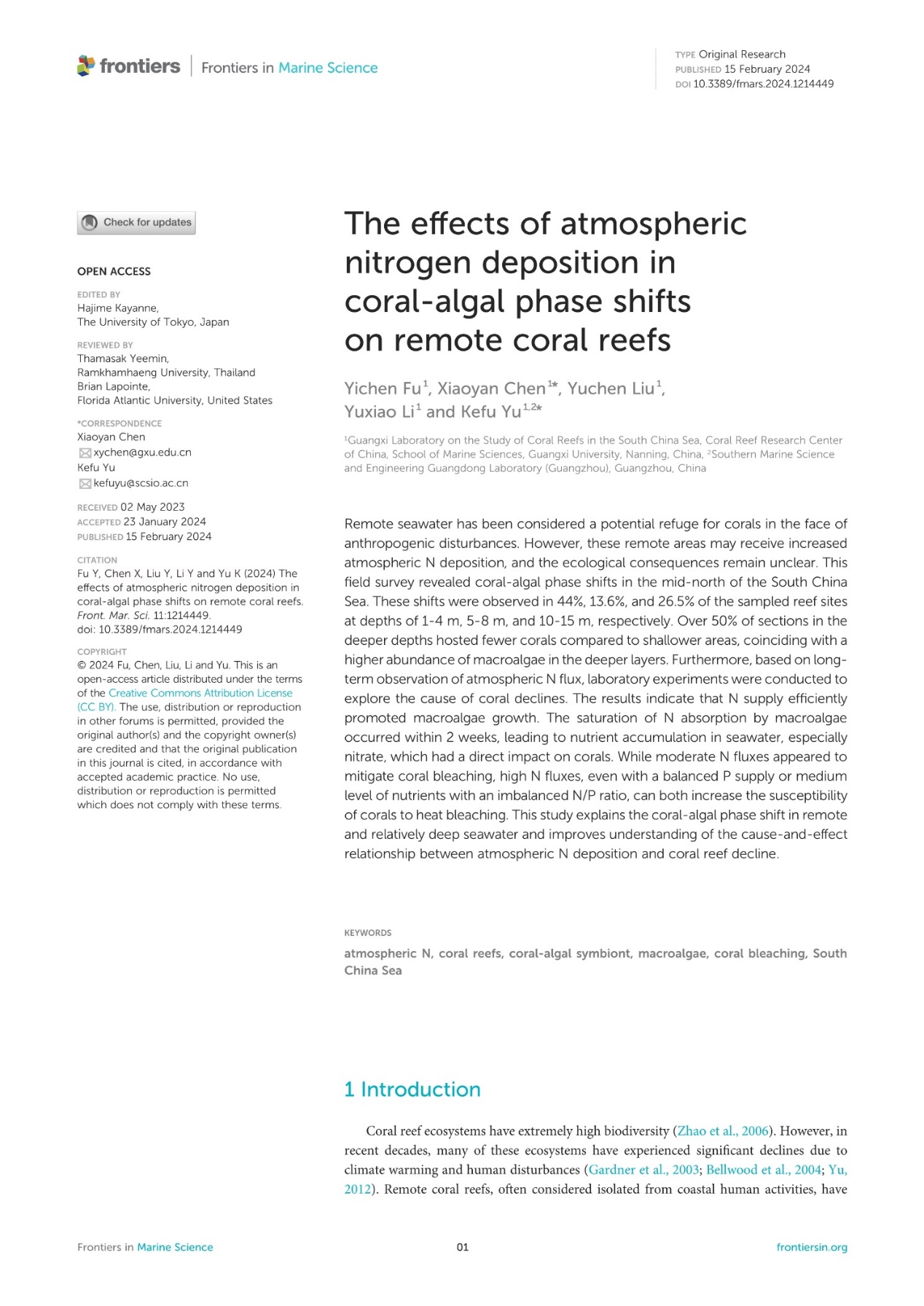Master's Student Yichen Fu Publishes Research on Atmospheric Nitrogen Deposition and Coral-Algal Phase Shifts in Frontiers in Marine Science.
Recently, master's student, Yichen Fu, published a research paper entitled "The effects of atmospheric nitrogen deposition in coral-algal phase shifts on remote coral reefs" in Frontiers in Marine Science (JCR Q1) as the first author under the supervision of associate professor Xiaoyan Chen.
Remote coral reefs are generally considered relatively ecologically stable and well-preserved areas, being away from the direct impact of costal human activities. However, long-range atmospheric transport introduces new disturbances to these remote coral reefs. For instance, terrestrial nutrients can be transported over long distances with air masses and deposit into remote coral reefs. The impact of atmospheric nitrogen (N) deposition on remote coral reefs remain unclear.
This study analyzed survey data on coral reefs from 81 stations across nine islands in the mid-northern South China Sea. The findings revealed that coral-algal phase transitions occurred at 44%, 13.6%, and 26.5% of the sampled reef sites at depths of the 1-4 m, 5-8 m, and 10-15 m, respectively. Over 50% of sections in the deeper depths hosted fewer corals compared to shallower areas, coinciding with a higher abundance of macroalgae in the deeper layers. Further, atmospheric N deposition fluxes in the study area were estimated based on wet deposition data from the Acid Deposition Monitoring Network in East Asia (EANET). Laboratory experiments were conducted to investigate the effects of N deposition on coral reefs. The results indicate that N supply efficiently promoted macroalgae growth. The saturation of N absorption by macroalgae occurred within two weeks, leading to nutrient accumulation in seawater, especially nitrate, which had a direct impact on corals. While moderate N fluxes appeared to mitigate coral bleaching, high N fluxes, even with a balanced P supply or medium level of nutrients with an imbalanced N/P ratio, can both increase the susceptibility of corals to heat bleaching.
This study explains the coral-algal phase shift in remote and relatively deep seawater and improves understanding of the cause-and-effect relationship between atmospheric N deposition and coral reef decline.
Item information is
Fu Y, Chen X, Liu Y, Li Y and Yu K (2024) The effects of atmospheric nitrogen deposition in coral-algal phase shifts on remote coral reefs. Front. Mar. Sci. 11:1214449. doi: 10.3389/fmars.2024.1214449
